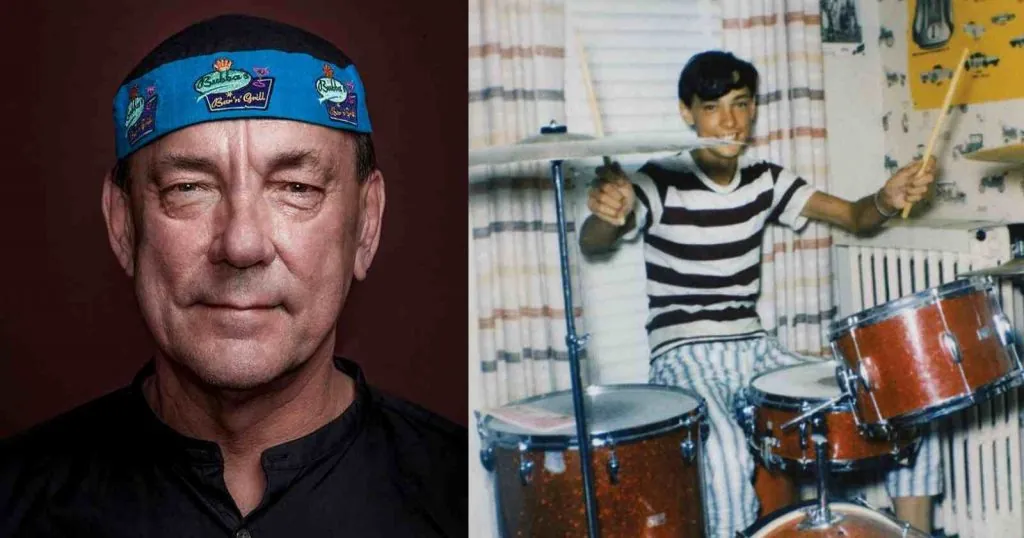Before becoming one of the greatest drummers of all time, the late Neil Peart worked as a Parts manager in a dealership in Canada with his father. In an interview with Farm Equipment back in 2019, Mr. Glen Peart (Who died in 2021, one year after Neil) recalled some of his son’s working experiences that prepared him for the bigger challenges he would have in life later on.
The important work experiences Neil Peart had before Rush according to his father
Neil Peart’s father told the publication that Neil had worked with him at the dealership several summers while he was attending school. He also noted that his son was good with numbers and had “an easy way with people”. However, the problem was that his only “burning passion” was to be a drummer, so he wasn’t really trying to make a career at the dealership.
According to Glen, Neil achieved local success playing with some bands but the main problem was that the other members of those bands didn’t had the same passion and commitment that Neil had with the music. He also reacalled the importance of the experience that his son had living in England before he joined Rush: “All the music that Neil wanted to play was coming out of England. At the age of 18 we talked it over and he would be working with me for the summer. I said whatever he could save up, I would double.”
“In the fall, we built a plywood crate for everything he owned — pretty basic — plus his precious drum kit, and off he went. The pickings were pretty slim; he ended up working for a Canadian who operated a souvenir shop on Carnaby Street in London. Neil was to clean up the old store paint it and get it ready for merchandise to put on the shelves. Neil had been working this project for a few days when the owner popped into the shop and said ‘I’m going to be away for a few days, the merchandise will be arriving. Could you just open the cartons and put it on the shelves?’”
Neil’s father continued:
Neil was glad to have the job. As it arrived, he lined it all up on shelves as he had done many times in our dealership. When the owner returned, he was so pleased he said, ‘Why don’t you stay here and manage this store for me? His dealership experience did pay off! In the fall of 1973, our dealership won a sales campaign trip to England with many other Canadian dealers. His mother, Betty, and I had the chance to spend a couple of days with him in London. Betty was concerned that he was so thin and pale. The English climate will do that to you. But he was obviously homesick and missed all his friends.'”
“Neil and I had a talk. I said ‘Neil, you are managing the store here and I have a Parts Dept. that could sure use you!’ So I know this was working on him and in the New Year (1974), he sent us a note and said ‘Dad, I’m coming home!’ I don’t know who was happier, his mom or dad, but it was a celebration!” Glen Peart said.
His father also said that he thought that the experience that Neil had at the dealership helped him in some level to cope with all the big and new challenges he would face later on as Rush’s drummer and main lyricist.
Neil Peart
Legendary Rush drummer Neil Peart died at the age of 67 on January 20. The musician was battling brain cancer for the past 3 years. The disease was never revealed to the fans and was now confirmed by his family. His last moments were in Santa Monica, California. He lived there with his family.
He inspired countless generations of drummers from many different genres and helped to create some of the best-selling albums the group had like “2112” (1976), “Permanent Waves” (1980) and “Moving Pictures” (1981).
Born in the Canadian city of Hamilton, Peart initially entered the music universe while studying piano. But he never showed much appreciation for the instrument. When he was fourteen, his parents presented him with a drum kit. Peart participated in some groups in his teens. But his life changed – and rock’s trajectory – in 1975, when he joined bassist and vocalist Geddy Lee and guitarist Alex Lifeson of Rush.

